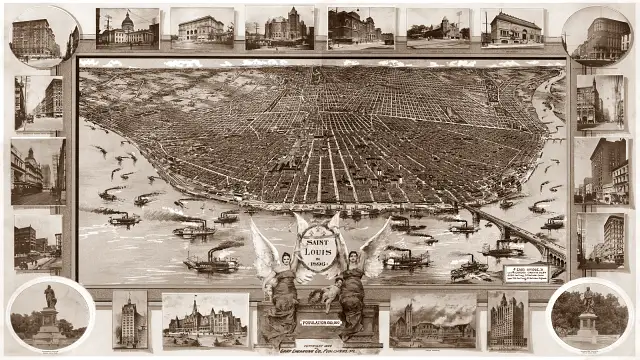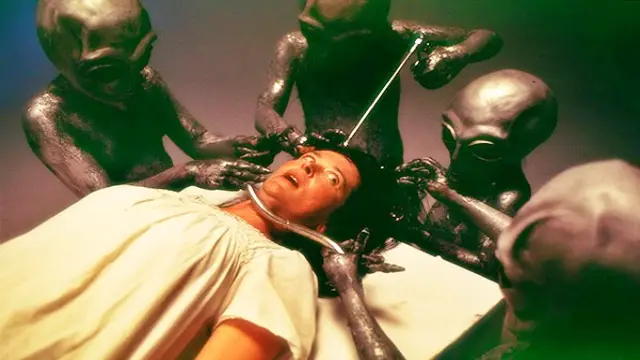nPosted on November 3, 2018
n
Key Points
n
n
n A Peruvian man who lived during the 1500s and 1600s, Martin de Porres worked to help poor people – especially poor children. He established an orphanage and a children’s hospital.
A Peruvian man who lived during the 1500s and 1600s, Martin de Porres worked to help poor people – especially poor children. He established an orphanage and a children’s hospital.
 A Peruvian man who lived during the 1500s and 1600s, Martin de Porres worked to help poor people – especially poor children. He established an orphanage and a children’s hospital.
A Peruvian man who lived during the 1500s and 1600s, Martin de Porres worked to help poor people – especially poor children. He established an orphanage and a children’s hospital. n
n
n
nHe is now considered the patron saint of (among other things) mixed-race people and all those seeking racial harmony.
n
n
n
nSan Martin de Porres was himself mixed race; his father was a Spanish nobleman, and his mother had been enslaved in Panama and had either African (probably) or Native American (maybe?) ancestry. Martin’s father abandoned him, his mom, and his baby sister – not a very noble deed, but of course nobody stripped him of his nobility. Martin’s mother worked hard to feed the family by doing other people’s laundry – a very noble thing to do, but of course nobody made her a noble.
n
n
n
nSo…San Martin grew up poor. He was a devout religious believer but, at the time, couldn’t be ordained because of his mixed race. So he volunteered to live in the Holy Rosary Priory, in Lima, as a servant, doing kitchen work, laundry, and cleaning.
n
n
n
n
nAfter eight years of Martin’s dedicated work. The prior of Holy Rosary decided after eight years to ignore the law against ordination, and he allowed Martin to take his vows. However, at least two of the men who lived in Holy Rosary disagreed with this decision; one called him a mulatto dog, and the other mocked him for being descended from enslaved people.
n
n
n
nI bet those two guys were never recognized as saints, like Martin was!
n
n
n
nLet’s talk about mixed race people…
n
n
n
n“Race” is not a biological description – every human is the same species, and we are way way way way more the same than we are different. “Race” is something that we use to talk about societies and how they work. Unfortunately, the history of the world includes a LOT of racism, and there is still a ton of racism that is either openly expressed or lurking half-hidden in human interactions.
n
n
n
nSo, given that “race” exists in this sociological way, it turns out that biracial or mixed-race folks have quite a few problems that people who don’t consider themselves mixed simply don’t have. That includes everything from being asked “What are you?” or “Where are you REALLY from?” to being told “You aren’t REALLY _____” by some members of each of their parents’ races.
n
n
n
 |
| Meghan Markle, now the Duchess of Sussex, with her mother |
n
n
n
n“What are you?” usually comes off as rude. And of course, there are a lot of answers that don’t involve race or ethnicity: for sure a person / human, maybe a student or an artist or some other descriptor, maybe “I’m hungry” or “I’m thirsty” best describes the current moment…
n
n
n
nIf you have already gotten to know someone and have already discussed a lot of other things, you may at some point, way way way way down in the conversation or relationship want to ask, “What is your ethnic heritage?” But you should probably only ask this if there is a good reason to ask. Mostly, you should just allow others to bring up their ethnicity if and when they wish to.
n
n
 |
| Barack Obama with his mom, above, and his daughter, below. |
n
n
n
n
n
n
n“Where are you from?” is a perfectly fine question, but the answer is likely to be pretty ordinary. Texas, New Jersey, California… Do NOT follow up this question with another: “But where are you really from?” This is not a subtle non-racist way of asking about someone’s race or ethnicity; the question itself is a huge problem.
n
n
n
nAlso, don’t follow up with “But where are your parents from?” Again, first, the answer is still likely to pretty ordinary. Second, the question is racist and makes the other person feel…well, like the “other.” It’s a question that pushes someone away, and that’s not cool.
n
n
n
nBiracial people often report that they face negativity from some people of all races. A person with a black parent and a white parent, for example, is often made to feel that they aren’t black enough by black folks but aren’t white enough by white folks. They sometimes feel that they don’t fit anywhere. “You’re not REALLY black…” and “You’re not REALLY white…” are both sides of the same we-don’t-accept-you coin.
n
n
n
nRemember:
n
n
n
n(1) We are all human. If you go back far enough, we ALL share ancestors.
n
 |
| Abhijit Naskar is an author and a neuroscientist. |
n
n
n
n(2) Culture and traditions and heritage are cool and fun to explore, but nicely sharing your own and enjoying whatever others wish to share with you are way better ways to go than trying to immediately label someone. The need to instantly categorize someone makes that someone more of an object than a person.
n
n
n
n (3) Even if you think you are complimenting a person, stay away from things biracial people have heard a million trillion bajillion times. Don’t call people exotic. Don’t ask if you can touch others’ hair – or touch it! – unless you’ve been asked for hair styling help. Don’t say “mixed babies are so cute!” If a compliment “others” the other person, pushes them away or categorizes them as something other than “normal” – don’t say it!
(3) Even if you think you are complimenting a person, stay away from things biracial people have heard a million trillion bajillion times. Don’t call people exotic. Don’t ask if you can touch others’ hair – or touch it! – unless you’ve been asked for hair styling help. Don’t say “mixed babies are so cute!” If a compliment “others” the other person, pushes them away or categorizes them as something other than “normal” – don’t say it!
 (3) Even if you think you are complimenting a person, stay away from things biracial people have heard a million trillion bajillion times. Don’t call people exotic. Don’t ask if you can touch others’ hair – or touch it! – unless you’ve been asked for hair styling help. Don’t say “mixed babies are so cute!” If a compliment “others” the other person, pushes them away or categorizes them as something other than “normal” – don’t say it!
(3) Even if you think you are complimenting a person, stay away from things biracial people have heard a million trillion bajillion times. Don’t call people exotic. Don’t ask if you can touch others’ hair – or touch it! – unless you’ve been asked for hair styling help. Don’t say “mixed babies are so cute!” If a compliment “others” the other person, pushes them away or categorizes them as something other than “normal” – don’t say it!n
n
n
n
n
n
n
n
n
nAlso on this date:
n
n
n
n
n
n
nBunka No Hi in Japan
n
n
n
n
n
n
n
n
n
n
n
n
n
n
nIndependence of Cuenca in Ecuador
n
n
n
n
n
n
n
n
n
n
n
n
n
n
nIndependence Day in Dominica
n
n
n
n
n
n
n
n
n
n
n
n
n
n
nSeparation Day in Panama
n
n
n
n
n
n
n
n
n
n
n
n
n
n
n
n
nCliché Day
n
n
n
n
n
n
n
n
n
n
n
n
n
n
n
n
n
n
n
n
n
n
nNational Double-Talk Week
n
n
n
n
n
n
n
n
n
n
n
n
n
n
nJapan’s Culture Day
n
n
n
n
n
n
n
n
n
n
n
n
n
n
n
n
n
n
n
n
n
n
n
n
n
n
n
n
n
n
n
n
n
n
n
n
n
n
n
n
n
nPlan ahead:
n
n
n
n
nCheck out my Pinterest boards for:
n
- n
-
nNovember holidays
n
-
nNovember birthdays
n
-
nHistorical anniversaries in November
n
n
n
n
n
n
n
nAnd here are my Pinterest boards for:
n
- n
-
n
-
n
-
nHistorical anniversaries in December
n
n
n
n
n
n

































